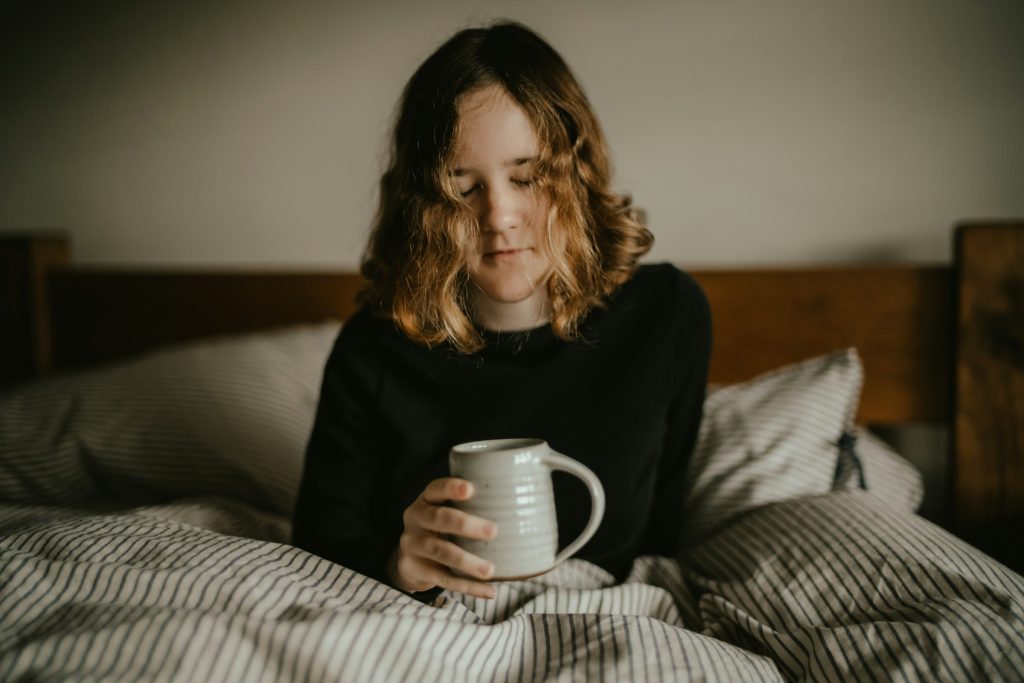In today’s fast-paced world, anxiety has become an increasingly common experience for many Australians. Recent data from the Australian Bureau of Statistics reveals that anxiety affects approximately 3.2 million Australians, making it one of the most prevalent mental health conditions in our country. While these numbers may seem daunting, it’s crucial to remember that anxiety is manageable, and there are numerous evidence-based strategies available to help individuals cope with and reduce their symptoms.
At Aanora, we understand the challenges that anxiety can present in daily life. That’s why we’re committed to providing accurate, helpful information to support your journey towards better mental health. In this article, we’ll explore anxiety, its common symptoms, and, most importantly, proven techniques for coping with anxiety.

Understanding Anxiety
Anxiety is more than just feeling stressed or worried. A persistent feeling of apprehension or dread can significantly impact your daily life. While it’s normal to feel anxious in certain situations, such as before an important presentation or during times of uncertainty, anxiety becomes a concern when these feelings are intense, long-lasting, and interfere with your ability to function normally.
Common symptoms of anxiety can include:
- Persistent worry or fear
- Restlessness or feeling on edge
- Difficulty concentrating
- Sleep disturbances
- Physical symptoms such as rapid heartbeat, sweating, or trembling
It’s important to note that anxiety can manifest differently for each individual, and symptoms can vary in intensity and duration.
Coping with Anxiety: Evidence-Based Coping Strategies
Research has shown that there are several effective strategies for managing anxiety. Let’s explore some of these evidence-based approaches:
Lifestyle Changes
Simple adjustments to your daily routine can have a significant impact on anxiety levels:
- Regular Exercise: Physical activity has been shown to reduce anxiety symptoms. Aim for at least 30 minutes of moderate exercise most days of the week. It could be as simple as a brisk walk, swimming, or cycling.
- Balanced Nutrition: A well-balanced diet can support overall mental health. Focus on whole foods, fruits, vegetables, lean proteins, and healthy fats. Limit caffeine and alcohol, as these can exacerbate anxiety symptoms.
- Prioritise Sleep: Good sleep hygiene is crucial for managing anxiety. Aim for 7-9 hours of sleep per night, and establish a consistent sleep schedule.
Mindfulness and Relaxation Techniques
Mindfulness and relaxation practices can help calm the mind and reduce anxiety:
- Deep Breathing Exercises: Simple breathing techniques, such as diaphragmatic breathing or the 4-7-8 method, can help activate the body’s relaxation response.
- Progressive Muscle Relaxation: This technique involves tensing and relaxing different muscle groups in the body, promoting physical and mental relaxation.
- Mindfulness Meditation: Regular mindfulness practice can help you stay present and reduce worry about the future. Even short daily sessions of 5-10 minutes can be beneficial.
Cognitive Behavioural Therapy (CBT) Techniques
CBT is a widely recognized and effective treatment for anxiety. While it’s best practiced under the guidance of a mental health professional, there are some CBT-based techniques you can try on your own:
- Thought Challenging: Identify and challenge negative thought patterns. Ask yourself: Is this thought realistic? Is there evidence to support or refute it?
- Gradual Exposure: Gradually face situations that cause anxiety in a controlled, step-by-step manner. It can help reduce fear over time.
- Worry Time: Set aside a specific time each day to focus on your worries. This can help you contain anxious thoughts and prevent them from dominating your entire day.
The Importance of Professional Support
While self-help strategies can be very effective, it’s important to recognize when professional help may be necessary. If anxiety is significantly impacting your daily life, relationships, or work, consider reaching out to a mental health professional. They can provide personalized support and recommend additional treatments tailored to your needs.
Mental health professionals who can help with anxiety include:
- Psychologists
- Psychiatrists
- Mental health nurses
- Social workers specialising in mental health
Remember, seeking help is a sign of strength, not weakness. Professional support can provide additional tools and strategies to manage your anxiety effectively.
Building a Comprehensive Anxiety Management Plan
Managing anxiety often requires a multi-faceted approach. A comprehensive plan might include:
- Regular practice of relaxation techniques
- Consistent exercise routine
- Healthy sleep habits
- Balanced nutrition
- Cognitive strategies to challenge anxious thoughts
- Professional support when needed
Remember, what works best can vary from person to person. Finding the right combination of strategies for you may take time, and that’s okay. Be patient with yourself and celebrate small victories along the way.
Overcoming Barriers to Treatment
It’s important to acknowledge that seeking help for anxiety can sometimes feel challenging. Common barriers include stigma surrounding mental health, concerns about cost, and limited access to services, especially in rural areas.
However, there are increasingly accessible options available:
- Many mental health professionals now offer telehealth services, making it easier to access care from home.
- Medicare provides rebates for certain mental health services under a Mental Health Treatment Plan.
- There are numerous online resources and support groups available for those dealing with anxiety.
Remember, taking the first step towards managing your anxiety is an act of self-care and courage.
Conclusion
Anxiety can be a challenging experience, but it’s important to remember that you’re not alone and there are effective ways to manage it. By incorporating evidence-based strategies into your daily life and seeking support when needed, you can develop resilience and relieve anxiety symptoms.
At Aanora, we’re committed to supporting your mental health journey. While we can’t provide specific medical advice, we encourage you to explore the strategies discussed in this article and to reach out to a healthcare professional if you need additional support.
Remember, managing anxiety is a journey, not a destination. Be kind to yourself, celebrate your progress, and don’t hesitate to seek help when needed. With the right tools and support, it’s possible to live a fulfilling life while managing anxiety effectively.



